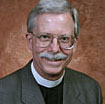Commentary on Romans 8:1-11
Romans 8:1-11 is an absolutely wonderful statement of the Good News–and also the source of much misunderstanding.
First, the Good News: “There is therefore now no condemnation for those who are in Christ Jesus.” The Greek is even stronger, since the very first word is no. Condemnation has buried in it the word judgment; literally the word is down judgment and thus condemnation. The judgment has occurred, and the prisoner is sentenced. But in this case there is no condemnation. When does that happen? Now: Paul’s eschatological now; today there is no condemnation for those in Christ Jesus. How so? Implicitly because of justification, a dominant theme earlier in the letter.
We could quit right now, and the preacher may well decide to do so. Five minutes in the office or in someone’s living room remind the pastor that many people feel condemned by God. They know they are sinners and see no way out. Verse 1 is a powerful opening for addressing that burden.
Second, the source of misunderstanding. Our text uses several times the word flesh, making what seem to be almost nonsensical statements such as “Those who are in the flesh cannot please God” (verse 8). If that is the reality, why even try to live in God-pleasing ways? The key is what Paul means by flesh (sarks). To understand his usage, we turn first to its apparent twin, body (soma). For Paul the body is neither good nor bad in and of itself. The issue is how the body is used. When the body is used as God intended, the body is good. But when the body is used inappropriately and opposed to God’s intention, it is for Paul a sinful body. Paul’s shorthand expression for a body that is misused is the term flesh. And so to live inappropriately is called living according to the flesh (kata sarka). With that understanding in mind, we turn again to the passage.
In verses 2-4 Paul discusses the new life. Verse 2 introduces the first of a series of contrasts: Spirit and life over against sin and death. The Christ-believer has been set free “from the law of sin and of death.” For Paul, verse 3, the law of Moses was weakened by the flesh and therefore was unable to remove the condemnation caused by sin. What God did, in a nice play on words, was to condemn sin itself. God did that by sending God’s “own Son in the likeness of sinful flesh.” “Ah,” docetists purr, “he was not a full human being. He was only in the likeness of sinful flesh.” That is right–and wrong. Christ was a full human being; he had and was a human body. But he did not misuse his body by sinning and therefore he was, by Paul’s definition, never flesh. Thus “he was only in the likeness of sinful flesh” but never sinful himself (see 2 Corinthians 5:21). In part because of that he was able to be a sin offering, condemning sin in the flesh.
One result of the death of Jesus was the fulfillment of the law in and for those “who walk not according to the flesh but according to the Spirit.” (verse 4) Walk is a term for how people live their lives. Today we say, “she not only talks the talk, she also walks the walk.” The positive walk is one according to the Spirit, over against the negative walk of the flesh.
In verses 5-8 Paul delves further into the old life. Once more flesh and Spirit are contrasted. The language Paul uses is that of mindset. The mindset is what people think about, what they focus on (verse 5). When people focus on the flesh, the result is death, both physical and spiritual in terms of separation from God. That is why a fleshly mindset results in hostility to God (verses 6-7) and why “those who are in the flesh cannot please God” (verse 8). Since “those who are in the flesh” have mis-directed their lives away from God they are unable to live as God wants them to live and obviously cannot please God. But when people focus on the Spirit the outcome is life and peace (verse 6).
With the earlier verses clearly in view, Paul in verses 9-11 defines the Roman believers. Negatively, believers “are not in the flesh.” Rather (definition one) they “are in the Spirit.” How do they know that? “The Spirit of God dwells in” them. The presence of the Spirit marks those who belong to Christ (verse 9). Further, (definition two) Christ is in them, and even though the body dies, “the Spirit is life because of righteousness.” “The Spirit is life” in the sense of life-giving.
The Spirit dwells in the body that was killed in baptism in relationship to sin (6:3-4) and gives it life. And through that same Spirit the God who raised Jesus from the dead will make alive the mortal bodies of believers (definition three). It is of note that the future “making alive” is a making alive of their bodies (sōmata), as in 1 Corinthians 15–and not a making alive of the flesh. Earlier in Romans God is the one who makes alive the dead and gives life to Abraham’s and Sarah’s dead bodies (4:17, 19).
While Paul is not a classic Trinitarian thinker, it is striking how closely Spirit, Christ, and God are associated with each other. It is also remarkable how hard it is to distinguish the Spirit and Christ and even God from one another.
Verses 2-11 raise one of the most basic questions in life: who is in charge? who calls the shots? what is our mindset? what is important to us? In a time in which anxiety and worry seem to constitute the air we breathe, how we walk, who dwells in us, and on what we focus may be exactly the questions we need to explore.

July 10, 2011